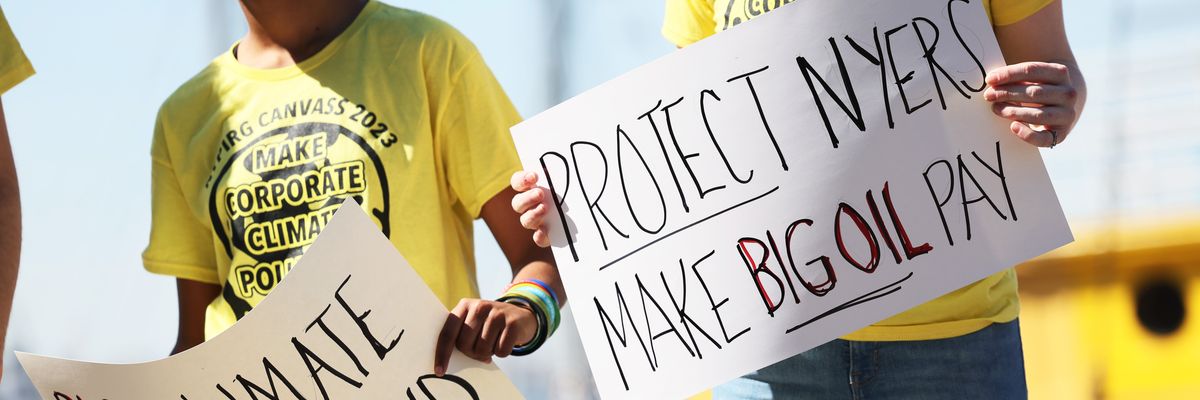Canada's finance and foreign ministers flew to Palm Beach, Florida on Thursday to meet with officials of the incoming Trump administration to try to avoid a damaging trade war between Ottawa and Washington.
Issued on: 27/12/2024 -
By: NEWS WIRES
FRANCE24


Canada's Minister of Foreign Affairs Melanie Joly responding to a question during a news conference in Ottawa, Noveber 1, 2024.
© Adrian Wyld, the Canadian Press via AP
Key members of Canadian Prime Minister Justin Trudeau's cabinet traveled to Florida on Thursday for talks with representatives of US President-elect Donald Trump, as Ottawa works to avert a potentially devastating trade war.
Newly appointed Finance Minister Dominic Leblanc and Foreign Minister Melanie Joly flew to Palm Beach, Florida, "to meet with officials from the incoming Trump administration," Leblanc spokesman Jean-Sebastien Comeau said in a statement sent to AFP.
Trump has vowed to impose punishing 25-percent tariffs on all Canadian imports when he takes office next month.
Trudeau has promised retaliatory measures should Trump follow through on his pledge, without providing specifics.
Trump has said the tariffs will remain in place until Canada addresses the flow of undocumented migrants and the drug fentanyl into the United States.
The meetings set for Friday will "focus on Canada's efforts to combat fentanyl trafficking and illegal migration," the statement said.
The ministers will brief Trump's team on Canada's new CAN$1-billion ($694-million) border security plan, which was devised in response to the tariff threat.
The meeting will also address "the negative impacts that the imposition of 25 percent tariffs on Canadian goods would have on both Canada and the United States," the statement added.
The statement did not mention who the Canadian officials would specifically be meeting with.
Trudeau's envoys headed to Florida as his government confronts an escalating crisis.
Leblanc was named finance minister earlier this month after the surprise resignation of Chrystia Freeland, who was also deputy prime minister.
In a scathing resignation letter, Freeland accused Trudeau of focusing on shortsighted handouts to voters instead of preparing Canada's finances to confront Trump's possible tariffs.
With his Liberal government trailing badly in polls to the Conservatives, some of Trudeau's former allies in parliament have urged him to resign.
Canadian media have named both Joly and Leblanc as potential contenders to lead the Liberal party should Trudeau go.
(AFP)
Key members of Canadian Prime Minister Justin Trudeau's cabinet traveled to Florida on Thursday for talks with representatives of US President-elect Donald Trump, as Ottawa works to avert a potentially devastating trade war.
Newly appointed Finance Minister Dominic Leblanc and Foreign Minister Melanie Joly flew to Palm Beach, Florida, "to meet with officials from the incoming Trump administration," Leblanc spokesman Jean-Sebastien Comeau said in a statement sent to AFP.
Trump has vowed to impose punishing 25-percent tariffs on all Canadian imports when he takes office next month.
Trudeau has promised retaliatory measures should Trump follow through on his pledge, without providing specifics.
Trump has said the tariffs will remain in place until Canada addresses the flow of undocumented migrants and the drug fentanyl into the United States.
The meetings set for Friday will "focus on Canada's efforts to combat fentanyl trafficking and illegal migration," the statement said.
The ministers will brief Trump's team on Canada's new CAN$1-billion ($694-million) border security plan, which was devised in response to the tariff threat.
The meeting will also address "the negative impacts that the imposition of 25 percent tariffs on Canadian goods would have on both Canada and the United States," the statement added.
The statement did not mention who the Canadian officials would specifically be meeting with.
Trudeau's envoys headed to Florida as his government confronts an escalating crisis.
Leblanc was named finance minister earlier this month after the surprise resignation of Chrystia Freeland, who was also deputy prime minister.
In a scathing resignation letter, Freeland accused Trudeau of focusing on shortsighted handouts to voters instead of preparing Canada's finances to confront Trump's possible tariffs.
With his Liberal government trailing badly in polls to the Conservatives, some of Trudeau's former allies in parliament have urged him to resign.
Canadian media have named both Joly and Leblanc as potential contenders to lead the Liberal party should Trudeau go.
(AFP)












.JPG)


